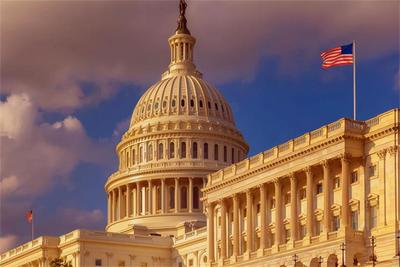The 2024 US election is likely to have several impacts on the foreign trade industry:

1. Tariff policy changes:
– Possibility of imposing high tariffs: If Trump is elected, he has proposed to levy a 10% to 20% tariff on all goods imported into the United States and a 60% tariff on goods imported from China during the campaign. If this policy is implemented, the export costs of many categories of goods from China, such as mobile phones, computers, textiles, clothing, and luggage, will rise significantly. This will weaken the price competitiveness of these products in the US market and have a major impact on China’s exports. The same situation may also apply to other countries exporting to the US, thereby affecting the global foreign trade pattern.
– Potential risk of revoking most-favored-nation treatment: Revoking China’s most-favored-nation treatment has also been written into this year’s Republican Party’s campaign platform. If this happens, the basic tariff rate may increase from the current 3.4% to 40%. Coupled with the average weighted tariff rate of about 20% imposed during the previous trade friction, the average tariff on China may eventually be as high as 60%. However, this approach requires congressional legislation to pass, which is a lengthy process.
3. Changes in the trade pattern:
– Accelerated diversification of China’s export markets: The imposition of tariffs by the US may prompt China to shift its surplus products to other major markets, including the EU, Japan, and South Korea. This will intensify market competition in these regions, but it also provides opportunities for Chinese enterprises to expand into new markets and promote the diversified development of China’s foreign trade market.
– Rise of global trade protectionism: The changes in the US’s trade policies may trigger the imitation of other countries, leading to a further rise in global trade protectionism and increased trade tensions. This will bring uncertainties to the global trade order and affect the trade relations between countries.
2. Accelerated supply chain transfer:
– US companies seeking alternative suppliers: High tariffs will prompt US companies to accelerate the diversification from China’s manufacturing centers and look for alternative suppliers and production bases in regions such as Southeast Asia, South Asia, and Latin America. This may lead to the transfer of some of China’s export orders to these regions, and China’s position in the global supply chain may be challenged to some extent. At the same time, the manufacturing industries in these regions face with development opportunities, and their participation and importance in the global supply chain will gradually increase.
– Accelerated automation transformation by Chinese enterprises: In the face of high tariffs in the US market, Chinese manufacturers may accelerate the promotion of automation and AI-driven manufacturing to improve efficiency and reduce costs, thereby enhancing their own competitiveness. In the long run, this is conducive to the upgrading and transformation of China’s manufacturing industry, but in the short term, it may face certain pressures, and a large amount of funds and technologies need to be invested for industrial upgrading.
5. Impacts on specific industries:
Different candidates have different policy tendencies towards specific industries, which will have an impact on the foreign trade of related industries. For example, if a candidate advocates greater protection for certain manufacturing industries and increases import tariffs on related products, then for the exporting countries of these products, their trade volume with the US may decline, while the related industries in the US may get development opportunities.
4. Exchange rate fluctuations:
During the election period, the uncertainty of the political situation often leads to significant fluctuations in the US dollar exchange rate. In an election year, the fluctuation range of the US dollar exchange rate may increase compared to ordinary years. For foreign trade enterprises, this means a sharp increase in settlement risks. If the US dollar appreciates, the import cost of the US will decrease, which may stimulate imports; conversely, a depreciation of the US dollar is conducive to the exports of the US.

